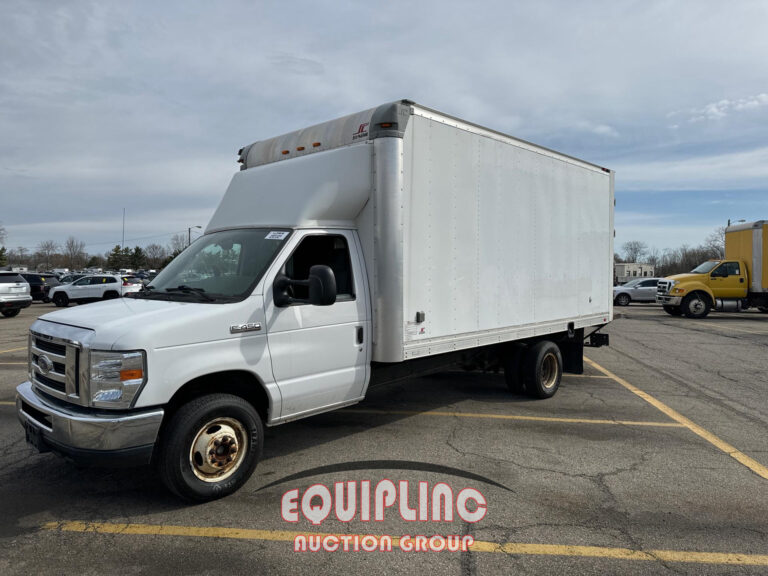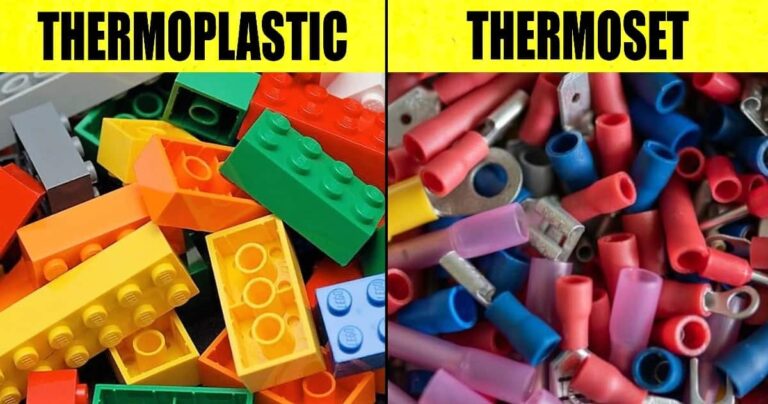Super Vac Trucks For Sale: Your Comprehensive Guide to Industrial Vacuum Loaders
Super Vac Trucks For Sale: Your Comprehensive Guide to Industrial Vacuum Loaders cars.truckstrend.com
In the demanding world of industrial cleaning, environmental services, construction, and infrastructure maintenance, certain pieces of equipment stand as indispensable workhorses. Among these, the Super Vac Truck, also known as an industrial vacuum loader or vacuum excavator, reigns supreme. These powerful machines are designed to efficiently and safely suction, collect, and transport a vast array of wet and dry materials, from fine powders and sludges to heavy gravel and liquids. For businesses looking to enhance their operational efficiency, reduce labor costs, and tackle challenging clean-up or excavation tasks, investing in a Super Vac Truck is often a strategic and highly beneficial decision.
This comprehensive guide delves into the world of Super Vac Trucks for sale, offering insights into their functionality, applications, key considerations for purchase, maintenance tips, and much more. Whether you’re a seasoned contractor expanding your fleet or a new business owner exploring essential equipment, understanding these robust machines is the first step toward making an informed investment.
Super Vac Trucks For Sale: Your Comprehensive Guide to Industrial Vacuum Loaders
What Exactly Are Super Vac Trucks? Understanding the Core Technology
At its heart, a Super Vac Truck is a specialized vehicle equipped with a high-powered vacuum system, a large debris tank, and typically a hydraulic boom with an attached hose. The fundamental principle of its operation is the creation of a powerful vacuum (negative pressure) within the sealed debris tank. This vacuum pulls air and material through the intake hose, depositing the collected substances into the tank for storage and later disposal.
Key components and their functions include:
- Vacuum System (Blower/Pump): This is the heart of the machine, generating the immense suction power. Blowers are rated by Cubic Feet per Minute (CFM), indicating the volume of air moved, and Inches of Mercury (Hg), measuring the vacuum strength. Higher CFM and Hg ratings translate to greater lifting power and speed for material transfer.
- Debris Tank: A large, robust tank, typically made of carbon steel or stainless steel, designed to hold the collected materials. Capacities range from a few cubic yards to over 20 cubic yards, or thousands of gallons for liquids. Many tanks feature hydraulic tilt systems for easy discharge.
- Filtration System: Crucial for protecting the blower and preventing particulate matter from being released into the atmosphere. This often involves cyclonic separators for larger particles, followed by baghouses or cartridge filters for finer dust. HEPA filters may be used for hazardous materials.
- Hydraulic Boom and Hose: An articulating arm that extends and positions the intake hose, allowing operators to reach materials from a distance or at various angles, minimizing manual handling. Hoses are heavy-duty and designed to withstand abrasive materials.
- Chassis: The truck itself, which carries the vacuum system. These are typically heavy-duty commercial truck chassis from manufacturers like Freightliner, Kenworth, Peterbilt, or Mack, chosen for their durability and power take-off (PTO) capabilities.
- Optional Features: Many trucks come with water pumps and tanks for hydro-excavation, pressure washers for cleaning, or heating systems for cold weather operation.

Why Invest in a Super Vac Truck? Benefits & Applications
The versatility and raw power of Super Vac Trucks make them invaluable assets across a diverse range of industries. Their benefits extend far beyond simple clean-up, offering significant operational advantages:
- Unmatched Efficiency: These machines can move vast quantities of material quickly, drastically reducing the time and labor required for tasks that would otherwise be slow, manual, and hazardous.
- Versatile Material Handling: From liquids, slurries, and sludges to dry bulk materials like sand, gravel, cement dust, fly ash, and even hazardous waste, Super Vac Trucks can handle a wide spectrum of substances.
- Enhanced Safety: By minimizing manual handling of potentially dangerous or contaminated materials, and reducing exposure to airborne dust, these trucks significantly improve worksite safety. They are essential for spill clean-up and working in confined spaces.
- Environmental Compliance: Effective containment of pollutants, dust control, and proper waste management are critical for environmental regulations. Super Vac Trucks provide a clean and controlled method for material collection and transport.
- Cost-Effectiveness & ROI: While the initial investment can be substantial, the speed, efficiency, and ability to undertake diverse projects often lead to a rapid return on investment, particularly for used models that offer a lower entry point.
Common Applications:
- Industrial Cleaning: Factories, power plants, refineries, cement plants, and foundries use them for routine maintenance, spill clean-up, and removing accumulated dust and debris.
- Hydro-Excavation: Utilizing high-pressure water to break up soil and simultaneously vacuuming the resulting slurry, offering a safer and less disruptive alternative to traditional mechanical digging for exposing underground utilities.
- Municipal Services: Sewer cleaning, catch basin cleaning, storm drain maintenance, and street sweeping.
- Construction: Site clean-up, material removal (e.g., gravel, sand, mud), trenching, and backfilling.
- Oil & Gas: Tank cleaning, spill response, and drilling fluid management.
- Mining: Removal of ore, tailings, and dust control.
- Emergency Response: Hazardous material spills, flood mitigation, and disaster clean-up.
Navigating the Market: Tips for Buying Super Vac Trucks For Sale
Acquiring a Super Vac Truck is a significant investment, and careful consideration is paramount. Whether you’re eyeing a brand-new model or exploring the robust used market, here’s how to approach your purchase:
-
Define Your Specific Needs:
- Material Type: Will you primarily handle wet, dry, or both? Abrasive materials require specialized wear plates and filters.
- Volume & Frequency: How much material will you move, and how often? This dictates tank capacity and vacuum power.
- Application: Hydro-excavation, general industrial cleaning, hazardous waste? Each may require specific features.
- Regulatory Requirements: Are you dealing with hazardous materials that require specific filtration (e.g., HEPA) or disposal protocols?
- Terrain & Accessibility: Consider the chassis and maneuverability for your typical work sites.
-
Budgeting and Financing:
- New vs. Used: New trucks offer warranties, the latest technology, and customization, but come at a premium. Used trucks are significantly more affordable and can offer excellent value if well-maintained.
- Operational Costs: Factor in fuel, maintenance, insurance, and operator wages.
- Financing: Explore equipment loans, leases, or lines of credit from banks or specialized equipment finance companies.
-
Key Specifications to Scrutinize:
- Vacuum Power (CFM & Hg): For heavy, dense materials, higher Hg (vacuum strength) is crucial. For light, bulky materials, higher CFM (air movement) is more important.
- Tank Capacity: Match this to your typical job size to minimize trips to the disposal site.
- Filtration System: Ensure it’s adequate for the materials you’ll be handling, especially fine powders or hazardous dust.
- Boom & Hose: Check reach, diameter, and material for durability.
- Chassis: Evaluate engine horsepower, transmission type, axle ratings, and overall condition.
- PTO (Power Take-Off): Ensure it’s robust enough to drive the vacuum system.
- Safety Features: Look for emergency stops, overfill protection, and proper lighting.
-
Inspection Checklist (Crucial for Used Trucks):
- Engine & Drivetrain: Check for leaks, unusual noises, and service records.
- Vacuum System: Inspect the blower for wear, listen for abnormal sounds, check the condition of filters, hoses, and the cyclone.
- Debris Tank: Look for rust, dents, cracks, leaks, and ensure the hydraulic dump mechanism operates smoothly.
- Hydraulics: Check all hydraulic lines, cylinders (boom, dump), and the pump for leaks or damage.
- Electrical System: Test all lights, gauges, controls, and safety interlocks.
- Undercarriage: Inspect tires, brakes, suspension, and frame for structural integrity.
- Maintenance Records: Request detailed service history; a well-documented truck suggests responsible ownership.
-
Where to Buy:
- Authorized Dealerships: Offer new and certified used trucks, warranties, and parts/service support.
- Online Marketplaces: Websites like MachineryTrader, TruckPaper, and Ritchie Bros. Auctioneers feature vast selections of used equipment.
- Auctions: Can offer competitive prices, but require quick decision-making and thorough pre-inspection.
- Private Sellers: May offer lower prices but come with less recourse if issues arise.
Maintaining Your Super Vac Truck: Ensuring Longevity and Performance
Proper maintenance is paramount to maximizing the lifespan, efficiency, and safety of your Super Vac Truck. Neglecting routine care can lead to costly breakdowns and reduced performance.
- Regular Fluid Checks & Changes: Adhere to manufacturer schedules for engine oil, transmission fluid, hydraulic fluid, and coolant.
- Blower/Vacuum Pump Maintenance: This is the most critical component. Regularly inspect the blower for wear, lubricate as recommended, and ensure proper filtration to prevent damage from abrasive materials.
- Filtration System Care: Clean or replace filters (baghouse, cartridges) frequently, especially when working with fine dust. A clogged filter reduces suction and strains the blower.
- Tank Cleaning & Inspection: Regularly clean the interior of the debris tank to prevent material buildup and corrosion. Inspect for cracks, leaks, or signs of wear.
- Hose & Boom Inspection: Check hoses for wear, cracks, or blockages. Inspect the hydraulic boom for leaks, proper function, and structural integrity.
- Chassis Maintenance: Follow standard truck maintenance protocols for engine, brakes, tires, and suspension.
- Operator Training: Properly trained operators understand how to use the equipment efficiently, identify potential issues early, and follow safety procedures, significantly reducing wear and tear and preventing accidents.
Challenges and Solutions in Operating Super Vac Trucks
Even with advanced technology, operating Super Vac Trucks comes with its unique set of challenges. Anticipating these and having solutions in place ensures smoother operations.
- Challenge: Clogging and Reduced Suction.
- Solution: Ensure the correct hose diameter for the material being moved. Avoid overloading the system. Regularly clean and inspect the filtration system. Use proper operating techniques to maintain a steady flow of material.
- Challenge: Component Wear and Tear (especially with abrasive materials).
- Solution: Invest in trucks with wear-resistant materials in critical areas (e.g., tank liners, wear plates in the cyclone). Implement a robust preventive maintenance schedule. Use genuine or high-quality aftermarket replacement parts.
- Challenge: Environmental and Disposal Regulations.
- Solution: Stay updated on local, state, and federal regulations regarding waste disposal. Proper categorization and disposal of collected materials are crucial to avoid fines and environmental damage. Utilize appropriate filtration to prevent air pollution.
- Challenge: Operator Safety and Training.
- Solution: Provide comprehensive training on safe operation, hazard identification, lockout/tagout procedures, confined space entry (if applicable), and proper use of personal protective equipment (PPE). Implement daily pre-operation checklists.
Practical Advice and Actionable Insights
- Prioritize Safety: Never compromise on safety features. Ensure the truck has functional emergency stops, proper lighting, and reliable safety interlocks.
- Maintenance Records are Gold: For used trucks, a detailed maintenance history is often more valuable than a low odometer reading. It indicates how well the previous owner cared for the equipment.
- Consider Rental Before Buying: If you have an infrequent need or are unsure about the specific type of truck you need, renting a Super Vac Truck for a project can provide invaluable real-world experience before committing to a purchase.
- Total Cost of Ownership: Look beyond the initial purchase price. Factor in fuel consumption, maintenance costs, insurance, and potential downtime for repairs when evaluating the long-term viability of a truck.
- Network with Other Operators: Learning from the experiences of other Super Vac Truck owners can provide practical insights into specific models, common issues, and maintenance tips.
Price Table: Estimated Costs for Super Vac Trucks For Sale
The price of a Super Vac Truck varies significantly based on brand, model, year, condition, features, capacity, and market demand. The table below provides estimated ranges for general guidance. These are not definitive prices and can fluctuate.
| Feature/Category | New Truck (Estimated Range) | Used Truck (Estimated Range) | Key Considerations |
|---|---|---|---|
| Entry-Level (Light Duty) | $150,000 – $300,000 | $50,000 – $150,000 | Smaller tanks (5-8 cu yd), lower CFM/Hg, basic features. Ideal for occasional use, lighter materials, or smaller-scale operations. |
| Mid-Range (Standard Industrial) | $300,000 – $550,000 | $150,000 – $350,000 | Good balance of power (e.g., 4000-6000 CFM), capacity (10-15 cu yd), versatile for a variety of wet/dry materials. Common choice for general contractors and industrial cleaners. |
| High-End/Specialized (Heavy Duty) | $550,000 – $800,000+ | $350,000 – $600,000+ | High CFM (6000+ CFM), large tanks (18-25+ cu yd), advanced filtration, often includes hydro-excavation capabilities, specialized booms, and superior build quality for continuous heavy use or hazardous materials. |
| Blower/Vacuum Pump | Included in base price | Condition Varies | The heart of the system. Replacement can cost $10,000 – $50,000+ depending on size and type. Inspect thoroughly on used models. |
| Tank Material (Carbon/Stainless) | Varies by configuration | Varies by configuration | Stainless steel adds to cost but offers superior corrosion resistance, crucial for corrosive materials. Carbon steel is standard for non-corrosive dry materials. |
| Hydro-Excavation Kit | $20,000 – $50,000+ (Add-on) | May be included or add-on | High-pressure water pump, separate water tank, and controls. Essential for non-destructive digging. |
| Shipping Costs | Varies (often extra) | Varies (often extra) | Can be substantial for large, heavy vehicles, especially across states or internationally. Always clarify shipping terms. |
| Maintenance & Parts | Lower initially | Potentially Higher | Factor in ongoing operational costs. Older or heavily used trucks may require more frequent and expensive repairs. Access to parts and qualified service is crucial. |
| Financing/Leasing | Available | Available | Interest rates and terms depend on your creditworthiness, the lender, and the age/value of the truck. |
Disclaimer: All prices are estimates and subject to change based on market conditions, manufacturer, specific features, and the truck’s condition (for used models).
Frequently Asked Questions (FAQ) about Super Vac Trucks
Q1: What’s the main difference between a standard vacuum truck and a hydro-excavator?
A1: While both are vacuum trucks, a hydro-excavator combines high-pressure water with a powerful vacuum system. The water is used to break up and liquefy soil, and then the vacuum system suctions the resulting slurry into the debris tank. This allows for non-destructive digging, making it ideal for safely exposing underground utilities. A standard vacuum truck primarily uses air to suction dry or liquid materials.
Q2: How often should I service my Super Vac Truck?
A2: Service intervals depend on the manufacturer’s recommendations, the type of materials being handled, and the intensity of use. Generally, fluid changes, filter replacements (engine, hydraulic, air, vacuum system), and general inspections should be performed every 250-500 operating hours or annually. The blower and filtration system require more frequent attention.
Q3: Can these trucks handle hazardous materials?
A3: Yes, many Super Vac Trucks are designed and certified to handle hazardous, corrosive, or flammable materials. However, they must be specifically equipped with features like stainless steel tanks, specialized filtration (e.g., HEPA), explosion-proof components, and often require specific permitting and operator training for such applications. Always verify the truck’s certification and capabilities for hazardous waste.
Q4: What do CFM and Hg mean for a vacuum truck?
A4:
- CFM (Cubic Feet per Minute): Measures the volume of air the vacuum system can move. Higher CFM is crucial for moving large volumes of lighter, bulkier materials quickly.
- Hg (Inches of Mercury): Measures the vacuum strength or suction power. Higher Hg indicates the ability to lift heavier, denser materials (like gravel, mud, or liquids) over longer distances or greater heights.
Q5: Is it better to buy a new or used Super Vac Truck?
A5: This depends entirely on your budget, specific needs, and risk tolerance.
- New: Offers the latest technology, full warranty, customization options, and often lower initial maintenance. Higher upfront cost.
- Used: Significantly lower upfront cost, faster depreciation has already occurred, and can offer excellent value. However, they may require more immediate maintenance, have no warranty, and their history needs thorough checking. For many businesses, a well-maintained used truck provides the best ROI.
Q6: What are some common brands of Super Vac Trucks?
A6: Leading manufacturers in the industry include Vactor, Guzzler, Presvac, GapVax, Cusco, Vac-Con, and Tornado. Each brand offers various models with different features and specialties.
Conclusion
Super Vac Trucks are more than just powerful vacuum cleaners on wheels; they are essential tools that drive efficiency, enhance safety, and enable businesses to tackle some of the most challenging industrial and environmental tasks. Whether your operation involves routine industrial cleaning, complex hydro-excavation projects, or critical emergency response, investing in the right Super Vac Truck can significantly boost your capabilities and bottom line.
By understanding the technology, carefully assessing your needs, thoroughly inspecting potential purchases (especially used models), and committing to diligent maintenance, you can ensure that your Super Vac Truck serves as a reliable and profitable asset for years to come. The market for Super Vac Trucks for sale is robust, offering a wide range of options to suit every budget and application, making it an opportune time to explore how these versatile machines can transform your operations.





